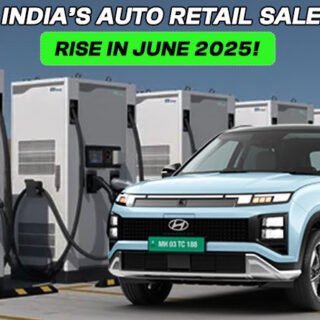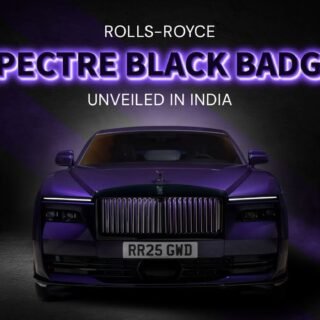With a budget of ₹1,993 crore, the Maharashtra government approved a new electric vehicle policy for 2025.
Only a few days after we announced that the state was developing an updated policy, the Maharashtra government formally approved the Electric Vehicle Policy 2025. Toll exemptions, purchase discounts, tax breaks, and improved charging infrastructure throughout the state are just a few of the incentives this policy offers to promote EV adoption and lower carbon emissions.
50% toll reduction for EVS
Electric cars and buses in Maharashtra can now drive toll-free on major expressways such as the Mumbai-Pune Expressway, the Mumbai Trans Harbour Link(Atal Setu), and the Mumbai–Nagpur Expressway (Samruddhi Mahamarg). In addition to these roads, the state government has also announced a 50% toll reduction on all other national and state highways managed by the Public Works Department for electric vehicles. This widespread toll exemption is expected to reduce travel expenses and increase EV adoption across the state.
Budget: ₹1,993 Crore
Over the next five years, the ₹1,993 crore program would be carried out. It will remain in effect until March 31, 2030, replacing the 2021 Electric Vehicle Policy, which was set to expire in March 2025. The government wants to make Maharashtra a national leader in EV adoption and manufacture while also tackling pollution and traffic problems.
Tax and Registration Benefits
The Maharashtra government is granting full tax breaks for electric vehicles as part of the new policy to make them more affordable. During the policy term, all EVS registered will receive a 100% waiver of motor vehicle tax. Buyers will also save any registration or renewal fees, lowering the overall cost of ownership. These perks apply to all electric vehicles purchased in the state.
Buyer Incentives: Up to 15%
This Maharashtra government policy offers upfront discounts to promote general EV adoption. Customers will save 10% off private and public e-buses, non-transport four-wheelers, three-wheelers, and electric two-wheelers. The 15% discount applies to larger vehicles, including electric freight trailers, tractors, and high-capacity EVs used for transportation or agricultural purposes.
Charging stations every 25 kilometres
It also plans to install EV charging stations at 25 km intervals along the national highways and state highways. This will help encourage people to adopt electric vehicles and overcome range anxiety. And fast-charging stations will be set up in bus terminals to support commercial EV vehicles.
By 2030, the state aims to lower the greenhouse gas emissions by 1 million tons and also significantly reduce the PM 2.5 levels.
Along with the new EV policy, Maharashtra also released revised regulations for app-based taxi services like Ola, Uber, and Rapido. The rules include mandatory licenses, real-time GPS tracking, safety measures, and strict cybersecurity regulations to promote safer and more accountable operations. The policy also includes a women-only ride option to encourage safer and more inclusive travel.
According to Chief Minister Devendra Fadnavis, the state’s ambition extends beyond vehicles and includes creating cleaner, better mobility. “We are considering making it mandatory for new societies to have EV charging stations; otherwise, occupancy certificates may not be issued,” Maharashtra Transport Minister Pratap Sarnaik stated.
“The new EV Policy aims to increase the production and adoption of electric vehicles. It includes provisions for passenger EV subsidies as well as exemptions from tolls on specific roads and highways for selected EVs. “Improving charging infrastructure is also a top priority,” he added.
Also Read
Bajaj Introduces Chetak 3503 in India: Combining Affordability With Must-Have Features
About The Author
Graham Rich Singhs
Graham is a designer who blends creativity and technical expertise to craft stunning web and graphic designs. He loves exploring and sharing insights about automobile designs, colours, and what makes cars visually exceptional.


















